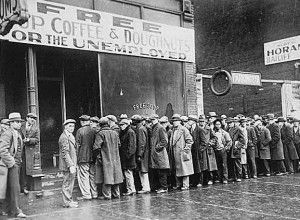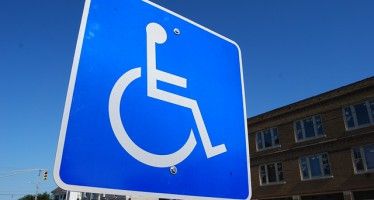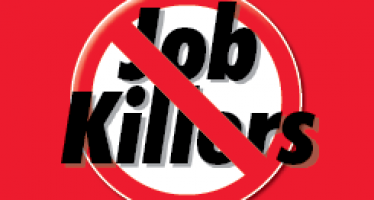Pelosi leads charge on minimum wage hike
By Josephine Djuhana
Raising the minimum wage helps the little guy — doesn’t it?
President Obama’s State of the Union address earlier this month was more than a brightly optimistic speech on the current state of affairs in the United States and abroad. It essentially was an outline of a Democratic Party agenda to be pushed come 2014. One of the topics discussed in his comprehensive speech was raising the federal minimum wage from $7.25 to $9.00 an hour. California’s own House Democratic Leader Nancy Pelosi of San Francisco has been a very vocal supporter of the issue.
“We want to raise the minimum wage,” said Pelosi in an interview with the Washington Post. “Raising the minimum wage is the right thing to do, but it’s a popular thing to do as well.”
Popular, indeed.
A survey by Rasmussen Reports found that 54 percent of likely U.S. voters favor raising the minimum wage to $9.00. Along a similar vein, a release by Pew Research showed an overwhelming 71 percent of the public wanted to raise the minimum wage.
Of course, raising the minimum wage in order to heighten everyone’s standard of living sounds like a great deal. And it seems much of America is in agreement. But there are many devils in the details. Voters should be cautious before making decisions based on what sounds good, rather than what is actually beneficial for the country.
Impact on young and low-skilled workers
A strong majority of individuals being paid the minimum wage are either young or low-skilled workers. According to the Bureau of Labor Statistics, nearly 50 percent of minimum wage workers are under 25. If you look at the numbers based on educational attainment, 27.7 percent of minimum wage workers don’t have a high school diploma.
Of the 72.3 percent of minimum wage workers with high school diplomas, 30.8 percent of the population paid at or below minimum wage are high school graduates with no college degree; and workers with some college education but no degree make up another 27.6 percent. Minimum wage jobs are vital for young people still in school and those without degrees.
So why is it bad to raise the minimum wage?
Raising the minimum wage brings higher expectations of employees, which leads to the phasing out of low-skilled and young workers in favor of higher-skilled workers. As Pepperdine professor Gary Galles explained in an Orange County Register column, “Those with the fewest skills, least education and job experience … face the greatest unemployment effects.”
Entry-level spots fill up quickly, leading to fewer employment opportunities because hourly rates are higher, and workers with less experience or training are left totally unemployed.
In an op-ed for the Los Angeles Times, Michael Kinsley called the proposal a “gamble”: “Minimum-wage workers might quite reasonably think: ‘This is a gamble. But it’s a gamble worth taking. Maybe I’ll end up without a job, but maybe I’ll end up with a raise of $1.75 an hour.’ That doesn’t sound like much of a raise, but it’s 24 percent.”
A report by James Sherk for the Heritage Foundation found that minimum wage increases actually benefit union workers, rather than minimum wage workers:
“A higher minimum wage increases the expense of hiring unskilled workers.[1] This makes hiring skilled union members more attractive and could raise the earnings of union members who compete with minimum wage workers by 20-40 percent.[2] Meanwhile, non-union, low-skilled workers’ earnings actually fall due to reduced working hours and fewer job opportunities.”
Recent studies led by Arindrajit Rube in 2010 and Sylvia Allegretto in 2011 suggested that raising the minimum wage does not actually negatively impact employment, for both low-skill and young workers. But a deeper investigation led by David Neumark in 2013 found that the methods used by Rube and Allegretto were “flawed and lead to incorrect conclusions.” Instead, said Neumark, the empirical evidence “indicates that minimum wages pose a tradeoff of higher wages for some against job losses for others, and that policymakers need to bear this tradeoff in mind when making decisions about increasing the minimum wage.”
California’s state-mandate minimum wage law is $8 an hour and Nevada’s is $8.25. Both are well above the $7.25 federal rate. Those two states also have two of the highest unemployment rates in the country.
In Wyoming, the minimum wage is the federal $7.25 per hour. But the “Equality State,” as it is nicknamed, has one of the lowest rates of unemployment at 5 percent.
Keep in mind, though, that correlation does not equal causation; California and Nevada also have much higher populations than Wyoming, therefore a greater number of people to employ. And California and Nevada were hit harder by the housing crash of 2007-08. But the general trend throughout the U.S. is that states with a higher minimum wage have a higher unemployment rate.
Impact on small businesses
Not only does a hike in the minimum wage hurt workers, it hurts small businesses as well.
During her remarks at a steering and policy hearing in 2011, Pelosi called small business “the key to America’s recovery and our sustained strength, and maintaining being number one in the world.” But her push to boost the minimum wage would hurt the very engine of America’s economy and hamper our already slow and shaky recovery.
Dan Danner, the president and CEO of the National Federation of Independent Business, laid out the economic facts of a minimum wage increase:
* “The prices of goods and services will rise to cover the increased labor costs.
* “This type of mandate adds burdens to you as employers, putting you at a competitive disadvantage.
* “The expense of an indexed wage increase would come on the heels of costs that are already increasing, like the dramatic cost of employee benefits…especially due to the mandates of his new healthcare law.”
Big businesses are relatively prepared for the increase, and better can handle new rules and regulations. The overhead is already in place, with a legion of lawyers on demand, human resources departments, lobbyists and regulatory analysts all at their disposal. But, as Steven Greenhut noted, small businesses “don’t have that infrastructure” and are placed at “a competitive disadvantage.”
Higher wages means that small businesses will take in lower profits, which leads to less reinvestment and expansion, and ultimately lower potential for employment opportunities and job growth.
A destructive policy
Raising the minimum wage is a part of a feel-good platform that has successfully wooed the majority of Americans to its side, but spawns a vicious cycle of unemployment and undue burdens on small business.
“Who would suspect that somebody thinks $9 an hour would be an obstacle to economic success for our country?” asked Pelosi. “Who would believe that? We really have to make sure that all the people who would benefit from an increase in the minimum wage realize this is what’s going on.”
Low-skilled workers, probably the one demographic in America that needs the most help to attain economic prosperity, would be hurt in the end. Young workers and students, most in need of entry-level jobs in order to gain experience and build their résumés, also would suffer the consequences and find it even more difficult to land a job in our disappointing economy. And small businesses, already saddled with the burden of Obamacare and new taxes and regulations, would struggle to keep afloat.
A minimum wage hike is not the answer to raise the standard of living for average Americans. It’s exactly the opposite.
Related Articles
ADA reform bill advances
Businesses will gain new incentives to comply under the American Disabilities Act, thanks to a bill authored by state Sen.
CalChamber plans another successful year of defeating “job killer” bills
Sacramento’s been taking care of business. Last week, the California Chamber of Commerce, known simply as CalChamber, announced a preliminary
On guns, D.C. works for once
Earlier this week, CalWatchdog.com’s Katy Grimes reported on the 14 gun-control bills that passed in the California Legislature amidst the





